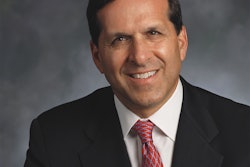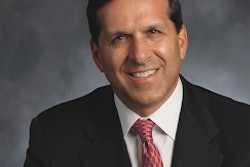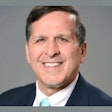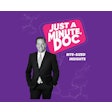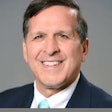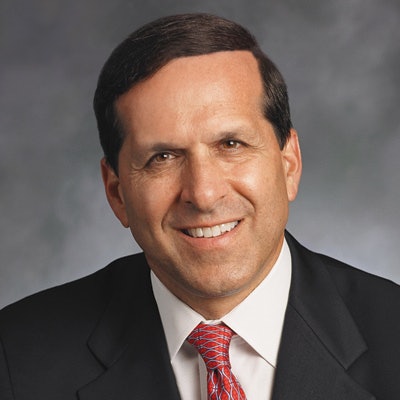
Last month we looked at how dentists can become great leaders. The topic of leadership is so essential to dental practice success that I thought it would be useful to take a closer look at the "why" behind this.
Dentists typically complete dental school without any leadership training. As a result, one of the things that dentists soon learn once they begin practicing is that leadership is hard to learn and master until you must lead other people. Some of the best business schools require applicants to have worked for at least five years prior to enrollment. This gives applicants a chance to have some real-life experience to benchmark their business school education against.
Leadership is also one of those areas where you can't simply apply statistics and numbers. It can't be taught in a one-hour webinar or even an all-day seminar. It takes education, practice, and experience, and you can become a great leader over time. But the real question is whether leadership really matters.
The new reality of dental staffing
 Roger P. Levin.
Roger P. Levin.If you follow publications like the Harvard Business Review, you'll quickly find out that we're facing a complete revolution in employment, employees, and the workforce. Dentistry is different from the corporate world but has the same challenges as many other industries currently.
I will begin by making the assertion that leadership must change to retain team members. The reason is simple: We have a dental staffing crisis in all areas of the profession that is impacting the amount of time, effort, energy, and financial performance that it takes to recruit, hire, interview, train, retrain, and motivate an excellent team.
As if this weren't complicated enough, we have a record number of staff turnover in dentistry. Levin Group now estimates that staff turnover reduces practice production by $50,000 to $100,000 per resignation either in a decline in production or the inability to achieve that extra $50,000 to $100,000. The cost of turnover is financially staggering, but so is the frustration, time, and effort needed to replace team members, especially if they are high performers.
We need a new model of leadership that is different than the past model. Many dentists have not realized that past doctor-staff employment relationships are transactional.
Transactional simply means that you hire and pay a staff member for a job, and the staff member does the work. You might be nice, friendly, positive, and energetic in your leadership, but the team management from a leadership standpoint is still transactional.
4 reasons to shift leadership models
Today, the transactional employment model is becoming more of a danger to practices, as it leads to resignations. Leadership now includes moving from transactional employment to relationships with team members. Below are several reasons why.
1. Staff members no longer simply want a job
Staff members don't want a life where they enjoy their personal time and simply work in the practice to get a paycheck. They want a blurring of lines where their personal time, which is enjoyable, blends nicely with their work time, which is equally enjoyable.
This does not happen in transactional employment. It's not that the current team members are necessarily miserable, but you're in danger of some of them leaving if you stay with transactional employment.
People today want work to be part of their personal life, or at least not to notice a dramatic difference. They want to be excited about their weekends and vacations and equally excited to come to work on Monday.
2. The culture of the practice needs to change
Practices spend extensive time focusing on how to provide customer service and a positive experience for patients. They spend far less time focused on how to provide customer service and a positive experience for team members.
Many of the top large businesses in the country have now shifted from worrying about financial performance and customer service to including their employees as a major focus.
Dental practices need to do the same. Simply paying people to do a job and expecting them to perform is no longer sufficient to retain team members and achieve excellent performance.
3. We are moving into an area that I have termed compassionate leadership
Compassionate leadership means that you have relationships with your team members and that the practice becomes a fulfilling and satisfying part of their lives. This can only happen when you move from transactional employment and know enough about each team member to have compassion for different situations.
4. Create a practice that is fun
Part of the new leadership model is the leader overseeing having fun. One dentist we have the pleasure of knowing refers to himself as the CFO, which in his case means chief fun officer.
Every month he has at least two fun activities ranging from lotteries to lunches to happy hours for the team with an understanding that focusing on the team is just as important as focusing on the patients. He has 18 staff members, and the average longevity in his practice is seven years.
A new era in leadership
If you accept that leadership really matters, then we also need to ask what type of leadership matters. Compassionate leadership is simply a name to describe a new approach to focusing on the team to give them the purpose, satisfaction, and enjoyment of working in your practice.
Every practice is a distinct business with a different culture and overall attitude. But the one thing that hasn't changed in leadership is that it starts with the leader.
Being the example of a positive, enthusiastic, and energetic leader has always been a wonderful leadership component for a dentist. Today we need to add compassion, which includes caring and concern.
You may immediately think that you're already compassionate, caring, concerned, and love your team. Let me pose a question: When was the last time you sat down with each team member and had at least a 15-minute conversation that wasn't a performance review?
If it has been more than eight weeks, it has been too long, and I'm guessing that for most practices, it has been far more than eight weeks. None of this is meant to be critical or judgmental but simply to make the point that we may overestimate our relevant leadership skills for today, which include compassion, caring, and concern.
Summary
Does leadership need to transform? I hope that this article has properly made the point that it does. Without shifting to a new leadership model, practices are in danger of losing excellent team members and high performers.
In many cases, team members do not leave to make more money but to find a more fulfilling and satisfying employment situation. As an example, in the last month, I spoke to one dentist who lost a team member who had a 30-minute drive to the office because she found a job five minutes from her home.
I spoke to another dentist who has a team member who lives 90 minutes from the practice, and she reminds him regularly that she will never leave. What is the difference between these two team members? I'm willing to bet it has something to do with compassionate leadership.
Dr. Roger P. Levin is CEO of Levin Group, a leading practice management and marketing consulting firm. To contact him or to join the 40,000 dental professionals who receive his Practice Production Tip of the Day, visit LevinGroup.com or email [email protected].
The comments and observations expressed herein do not necessarily reflect the opinions of DrBicuspid.com, nor should they be construed as an endorsement or admonishment of any particular idea, vendor, or organization.




